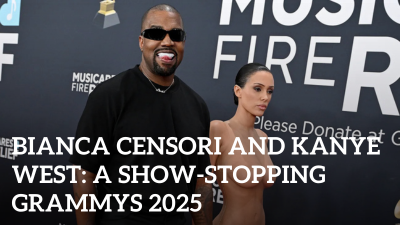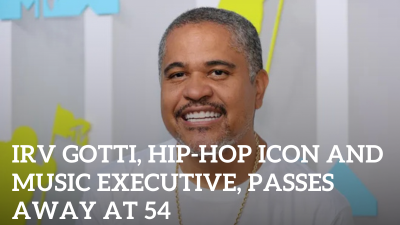Captain America: Brave New World is a film that has been much anticipated in the Marvel Cinematic Universe (MCU). Following Anthony Mackie’s turn as Captain America in the Disney+ series The Falcon and the Winter Soldier, fans were eager to see his take on the iconic superhero on the big screen.
While Mackie’s portrayal of Sam Wilson as Captain America is commendable, Brave New World struggles with pacing, convoluted storylines, and underutilized characters, making it feel like a missed opportunity in the MCU’s vast universe.

A Complex Plot with Unresolved Potential
At the heart of Captain America: Brave New World lies a story about legacy and the pressure of stepping into the boots of the iconic Steve Rogers. Sam Wilson (Anthony Mackie) finds himself grappling with the weight of carrying the shield.
The plot involves President Thaddeus Ross (Harrison Ford), who has recently taken office. Ross, a former foe turned reluctant ally, wants to bring global peace but also deals with personal baggage, including his estranged daughter.
The movie’s central conflict revolves around the fight for Adamantium, a powerful resource tied to the Celestial Island, creating tension between nations, superheroes, and supervillains alike.
While the premise holds promise, Brave New World struggles with pacing and incoherent storytelling. The inclusion of multiple writers adds to the movie’s lack of focus, resulting in a hodge-podge narrative that doesn’t quite hit its stride.
It feels as if Captain America: Brave New World is desperately trying to keep up with the vast MCU lore while also juggling too many plotlines and characters.
Marvel’s Latest Mistake? The Underuse of Characters
Anthony Mackie’s Sam Wilson carries the film with conviction, but it’s clear that Captain America: Brave New World doesn’t do enough to fully explore his new role.
Sam’s personal journey, as portrayed in The Falcon and the Winter Soldier, is barely touched upon here. Rather than exploring his fears and insecurities about becoming Captain America, the film opts for familiar action-packed tropes.
This leaves the movie feeling more like an action sequence than a character-driven story. Harrison Ford’s portrayal of President Thaddeus Ross, who eventually transforms into Red Hulk, is one of the movie’s most notable aspects.
Ford brings gravitas and complexity to the role, but his character arc overshadows Mackie’s Captain America. Ford’s Ross, struggling with his own demons, provides some of the more memorable moments, yet the movie often shifts focus from Sam’s emotional journey to the chaotic international conspiracy.
In doing so, it undermines the potential to explore deeper themes around race and legacy in Sam’s experience as Captain America.
The Predictable Villains and Overreliance on Action
The film introduces several villains, including Giancarlo Esposito as Sidewinder and Tim Blake Nelson as Samuel Sterns, but none of them manage to leave a lasting impact.
Their characters are overly theatrical and lack depth, which makes them forgettable in comparison to more fleshed-out antagonists in earlier MCU films.
Esposito, who is known for playing complex villains, is underutilized here, and the constant back-and-forth between these villains detracts from the emotional stakes of the film. Additionally, Captain America: Brave New World relies heavily on action sequences to carry the plot forward.
While the choreography and visual effects are standard fare for Marvel, they don’t elevate the movie to the level of other MCU classics like Captain America: The Winter Soldier. The battle scenes, though thrilling, feel somewhat generic and fail to provide the emotional payoff that many fans were hoping for.
Themes of Legacy and Redemption
A key theme in Captain America: Brave New World is the concept of legacy. Both Sam Wilson and President Ross are trying to prove themselves, albeit in different ways.
Ross is attempting to redeem himself after years of being portrayed as an antagonist in previous MCU films, while Sam struggles with the notion that he may never measure up to Steve Rogers’ legacy.
The relationship between these two characters, along with the return of familiar faces like Isaiah Bradley, offers glimpses of deeper emotional storytelling that the film could have delved into more.
Unfortunately, the movie doesn’t fully explore these themes. Instead, it opts for a more surface-level approach, briefly touching on Sam’s internal conflict before diving back into action.
This missed opportunity to explore race, legacy, and the burden of being a hero makes Captain America: Brave New World feel more like a generic Marvel film rather than a standout entry in the MCU.
Marvel’s Missed Opportunity
While Captain America: Brave New World is not devoid of merit, it ultimately feels like a missed opportunity. It has all the hallmarks of a Marvel movie—action, big-name stars, and superhero tropes—but it fails to deliver on the emotional depth and character development that made earlier films in the franchise so beloved.
Anthony Mackie deserves a better script to fully showcase his portrayal of Captain America, and Harrison Ford’s Red Hulk character, while intriguing, ultimately takes too much focus away from the central story.
In terms of the broader MCU, Captain America: Brave New World adds another chapter to the franchise that doesn’t quite live up to expectations.
While it may find an audience among hardcore Marvel fans, it’s unlikely to join the ranks of the most memorable superhero films of the past decade.


